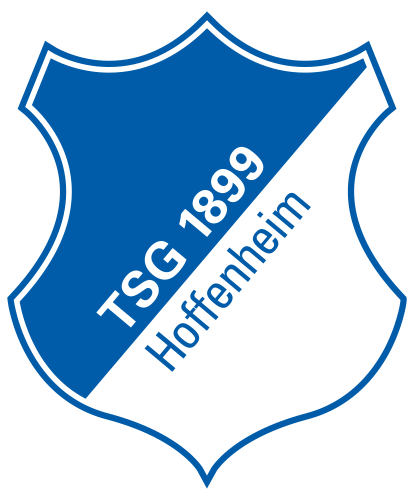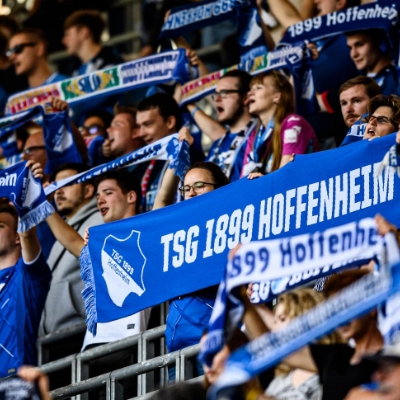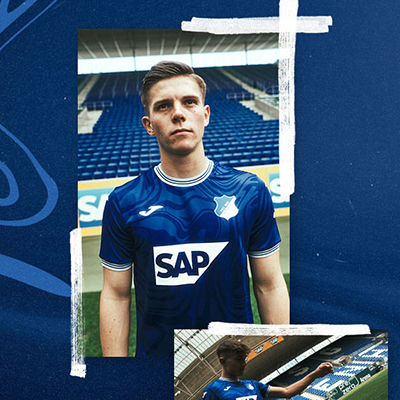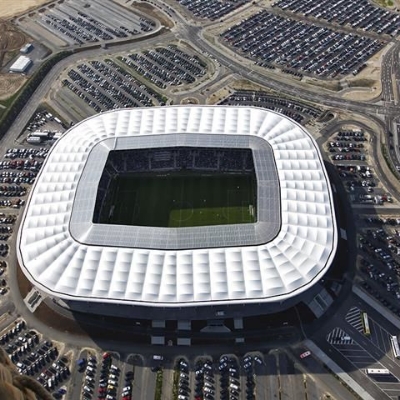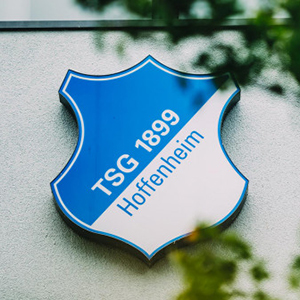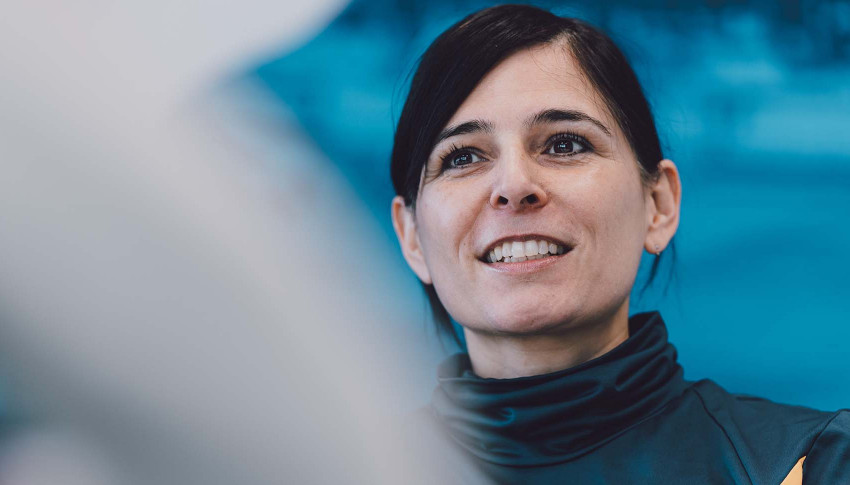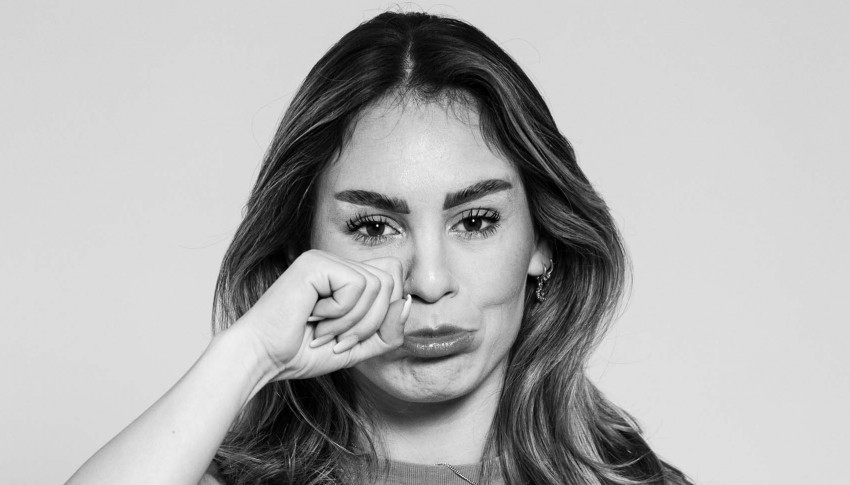Bülter: "My path has been extraordinary"
Marius, after a training session in Kitzbühel in pre-season, you said you wanted to achieve your full potential with TSG. Do you feel that you are already close to your best performance?
"More is definitely possible, no question. It's also been the case that I've played a slightly different position than at my previous clubs. There's always room for improvement. And when I talked about full potential, the first thing that counts is of course maximum success with the team. And there's room for improvement there too. Just as there is for me personally. Two or three goals would've been nice."
Do you feel you have settled in well after six months?
"I quickly felt comfortable within the team, I was given a super welcome. I'm therefore very satisfied. So all in all, it's all been really good."
Has there been a particularly key moment for you?
"My stoppage-time goal in Bremen which meant that we won 3-2. That was the moment when I could say that I'd arrived here. When I think about the first half of the season, that was my personal highlight. I hope that many more will follow."
Even back in pre-season, you were given additional defensive duties to fulfil on the left flank. How did you react to that?
"My first instinct was that I was up for it. It's not a completely different position, after all. I've also played there before at other clubs. I also notice that it's getting better from game to game. And while we're on the topic of achieving the maximum, there's certainly still room for improvement there too."
How do you view your standing in the team?
"I've only been here for six months, so I'm not a classic leading player already. But at the same time, I'm not the youngest either. I've never been a player who talks a lot in the dressing room, but more one who tries to lead the way on the pitch. You probably grow into the role. I still have some time on that front because my contract runs until 2026." (laughs)
Does the term late bloomer apply to you when it comes to football? Or does it have a negative connotations for you?
"No, it's not derogatory at all. It's just the case that there aren't many players who only make their Bundesliga debut at 26 years of age and then establish themselves in the league. That's why you could say I'm a late bloomer."
Would you have thought six or seven years ago that you would have 100 Bundesliga games under your belt?
"No, I wouldn't have thought that possible. My path has been extraordinary; something like this doesn't happen often. Maybe that's why I appreciate many things all the more. As a young boy, you dream about it, you always imitate the stars when you play football. When you think about how few footballers there are who play in the Bundesliga, it's actually crazy to have made it this far. Being one of them is really special. It probably only really sinks in when you're sitting on the sofa at the age of 50."
In Rheine, Neuenkirchen and Rödinghausen, you played in the Regionalliga and even in the fifth division. In Rödinghausen, you were the top scorer in the Regionalliga at the age of 25. How realistic was it for you to still become a professional?
"During my time in Rheine, the possibility was a long way off. I didn't give professional football a second thought. Things changed in Rödinghausen, because they were already training under almost professional conditions. The third division – and therefore the gateway to the pros – was not far away. I then made the leap at Magdeburg, who were promoted to the second division, although we were relegated again at the end of the season."
Most recently, you played for Union Berlin and Schalke 04 – two clubs with a large and emotional fan base – for two years each. At TSG, the environment is calmer. Do you view that as an advantage? Or do you think that more pressure can sometimes be a good thing?
"Sometimes I think pressure is not such a bad thing, but there are also phases in which it can be stressful. At Schalke, the pressure is sometimes so great that it gets in the way of your work. A lot of people butt their noses in. That doesn't happen to the same extent at TSG; here you concentrate on your responsibilities. I was aware that the whole environment here is a bit calmer, that you can work in a more relaxed way, which can be an advantage. We put the pressure on ourselves as a team because we want to win all our matches."
It often gets very loud and emotional at Schalke home games. Have you ever missed that atmosphere?
"I can think of few clubs – actually none at all – where the atmosphere is better than Schalke. But I think we've already had several matches this season where there was a good atmosphere at our stadium. Ultimately, we as a team are responsible for giving our fans a reason to be in a good mood. It unfortunately has to be said that we haven't managed to do that in some of our home games."
You are the only outfield player at TSG to have made an appearance in every game in the first half of the season. Why do you think the coach doesn't want to be without you in any game?
"First and foremost, you have to be healthy. And I'm doing a lot to make sure it stays that way. I'm of course pleased that I've been on the pitch for every game so far. That also shows that I've settled in well at Hoffenheim."
You are generally very consistent and only missed three games for Schalke over the last two seasons. Do you do anything special for your fitness?
"I do quite a lot in terms of preparation and follow-up work for the matches, but also for every training session. Over the years, I've gotten to know my body and know what I need. I can sense when it might be sending me signals that I need to take it a little easier. But maybe there is also a phase when you have to do more again to build up your body. That has worked really well in recent years. I'm very happy about that; it certainly requires a bit of luck."
Your path to Bundesliga football was extraordinary, your Bachelor's degree in mechanical engineering is not the norm for a professional either. Did you choose your degree and field of study carefully?
"It was certainly a conscious decision. I wanted to study something that would give me prospects of getting a good job afterwards. My father took the same path and also studied mechanical engineering. Thanks to him, I found the subject quite interesting. Maths was also my favourite subject at school – alongside sport. Although I was never actually the best at it." (laughs)
Did you manage your studies easily or were there moments when it became difficult to combine them with football?
"For a long time, it was cool for me to just play football on the side. Because I could earn a bit of money and didn't have to do any other work. I didn't have any pressure to finish my degree quickly. It became difficult when I moved to Magdeburg. 95% of my studies were done, but I still had two or three exams to sit. Before that, the biggest problem was my Bachelor thesis. In the mechanical engineering degree programme, you write about a topic from a company where you have to do a 12-week internship. After that, you have another 12 weeks to write your Bachelor thesis. At the time, I was playing in the Regionalliga with Rödinghausen, training every day and sometimes travelling long distances. For six months, I started work at 7:00 CET and then travelled straight to training. Because of this workload, it took me a while to actually start and complete my Bachelor thesis. (laughs) I really wanted to finish it. Maybe something that sets me apart is that I don't give up and want to finish things."
And even though you've now gone professional, does it feel good to have completed your studies?
"Absolutely. I'm proud that I finished it. At some stage, it got to the point where my parents kicked me up the arse and said: 'You've actually finished your studies except for your Bachelor thesis. But now you're going to finish them off. You'll still need your degree at some point. Back then, we didn't realise that football would go so well. And maybe I really will need it at some point."
Has your unusual path possibly also changed your view of the professional football business?
"During that period, even if it was only six months, I of course saw what other people have to do to earn their money. That's why I know exactly how privileged we professional footballers are. But the other players at TSG know that too. However, I've already gotten to know the other side a little better and felt what it's like to work eight hours a day in a normal job."
Do you, like many other professionals, aim to stay in football when your playing career is over?
"I certainly cannot imagine continuing to live the life I have now as a professional footballer. Every weekend you are on the road, always being dependent on where your job takes you, where you have to move to, not having a real home. As it stands, I can hardly imagine doing that. You have to go without a lot of things, you can't accept invitations to birthdays, weddings and other things at weekends. They are things I've had to go without for 10 years now, actually my whole life so far."
Do you have some distance from football in your private life?
"I'm lucky that I can switch off from football in my free time, I don't have sleepless nights and I don't think too much about football in my private life. When I come home, I don't talk much about football – in part because my wife isn't a football fan. That's good for me."


